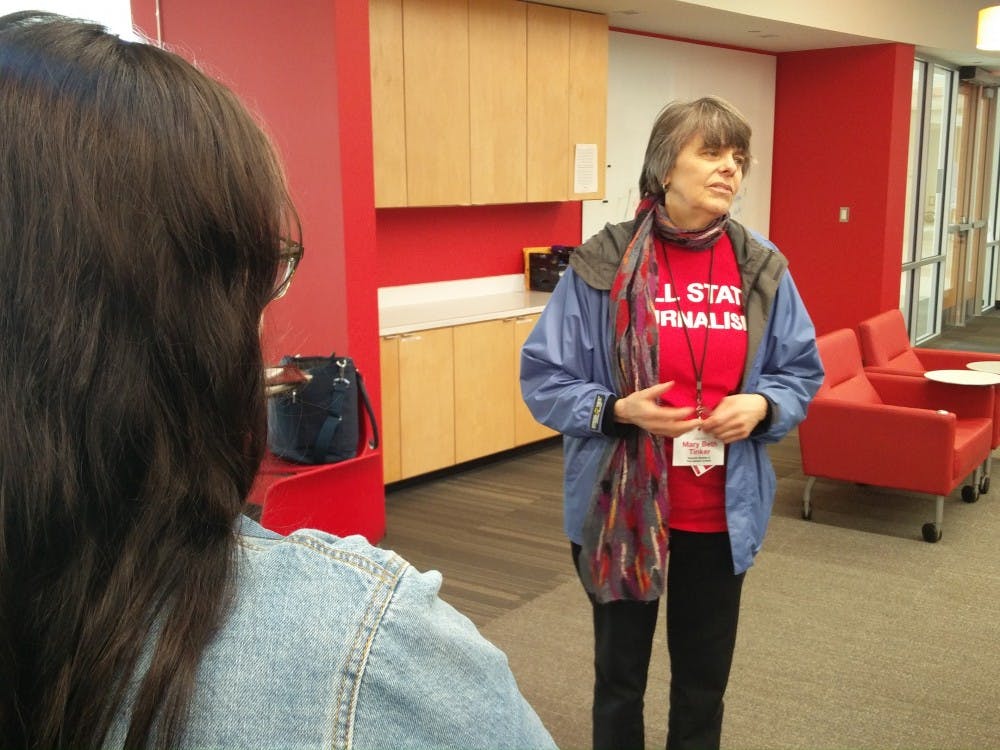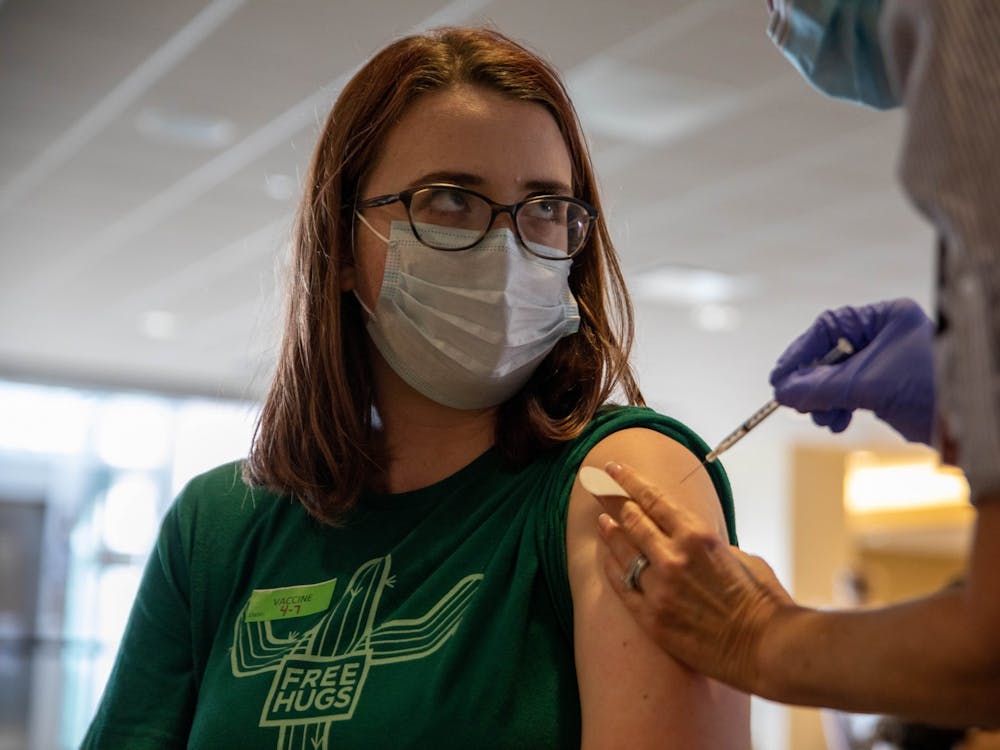On Feb. 24, 1969, in a 7-2 decision, the Supreme Court’s majority ruled that neither students nor teachers “shed their constitutional rights to freedom of speech or expression at the schoolhouse gate.”
The dissent argued the First Amendment does not grant the right to express any opinion at any time.
Editor's note: Mary Beth Tinker's was the keynote speaker of Ball State's Journalism Workshop's Journalism Day workshop for high school and middle school students and their advisers.
In 1965, a 13-year-old girl was one of the students at a public school in Des Moines, Iowa, who was suspended for refusing to heed the principal’s warning against wearing black armbands to school. In 2019, she continues to advocate for students’ rights and free press.
Mary Beth Tinker, one of the plaintiffs in the Supreme Court case Tinker v. Des Moines, spoke 8:45 a.m. Monday at Emens Auditorium to kick off Ball State Journalism Workshop’s Journalism Day event.
Tinker said in her many years working with children and teenagers she saw them having to often follow policy they have no say in.
“That’s not very democratic. That’s not democracy,” she said. “You should have a right to have a say in the policies that affect your lives.”
Tinker interacted with and involved the high school and middle school students in the audience throughout her presentation. Students asked and answered questions and were awarded free T-shirts for correctly naming the five freedoms of the First Amendment.
Apart from speaking about her own experiences leading up to the Supreme Court decision and after, she also shed light on the importance of free speech and free press with historically significant examples.
"You don't have to be the greatest person in the world ... but a little bit of courage can go a long way,” she said. “I had no idea that that little action was going to become a big deal.”
Tinker was invited to speak at Ball State after Jordan MacMillan, junior journalism education major who work at the Journalism Workshop, invited her via email.
MacMillan said Tinker didn’t realize the impact of what she had done until she read about her case in a textbook while in nursing school. MacMillan said it was “incredible” for Tinker to do what she did, not for “fame or notoriety” but rather “pure personal advocacy” for herself and others.
“Small action” by “ordinary people” is usually how history is made, Tinker said.
“[Tinker] saw something that was seen as an injustice. She expressed her discomfort for such a large issue by wearing the black armbands and she ended up making a difference,” MacMillan said.
In a separate interview with The Daily News, Tinker said while social media is one difference, there are “so many similarities” between activism on the part of youth today and activism from the 60s. These similarities stem from “the emotion that drives activism.”
“It’s not some intellectual endeavor,” she said. “It comes from the heart; it comes from seeing the world and feeling that it could be different, it could be better and this isn’t right. This is unfair.”
Tinker advised Ball State students to “connect with others and to work on not being controlled by money.”
“I think that’s one of the big dangers in our country and in the world,” she said. “Money interests should not be the ones that have control over the message and over the access to information. That is so undemocratic.”
The black armbands once donned by Tinker and her co-plaintiffs were distributed to students today with a message she wrote.
“I think that [the black armband]’s a reminder,” MacMillan said. “Wearing it today means that we haven’t forgotten about the importance of the case and that it’s still relevant.”
For Tinker, the black armband is “a symbol of mourning that goes through history.”
“It’s a way of turning grief and turning the unjust reality that we’re facing into something better and using our imaginations to imagine a better way, a more just world, a more fair world,” she said.
Tinker said that’s what the Parkland students, Black Lives Matter, students speaking up against the Muslim ban and students against hateful speech are doing.
“People love to tell young people that life’s not fair and that you should get used to it,” Tinker said. “But I always say, 'don’t get used to it because life should be fair.' And yes, students are the future, but they’re also the present.”
Contact Rohith Rao with comments at rprao@bsu.edu or on Twitter @RaoReports.





